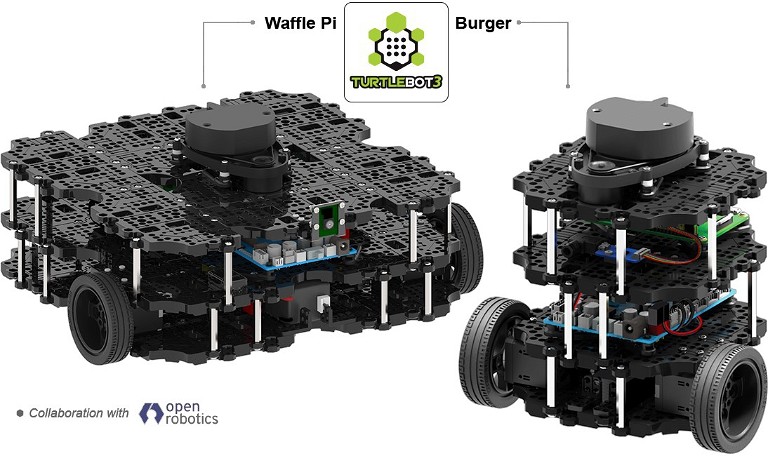OPEN SOURCE
ROS Research & Development
TurtleBot is the world’s most popular open source robot for education and research. TurtleBot3 is a new generation mobile robot that’s modular, compact and customizable. Explore the Robot Operating System and create exciting applications for education, research and product development.
Turtlebot3
AI Research Starts HERE.

ROS Official Platform
What is ROS ?
The Robot Operating System (ROS) is a set of software libraries and tools that help you build robot applications. From drivers to state-of-the-art algorithms, and with powerful developer tools, ROS has what you need for your next robotics project.
ROS is used by students of all ages. From kids to graduate students learning about the latest solutions to common robotics problems. ROS supports a wide variety of robots, including low-cost platforms like the TurtleBot and LEGO Mindstorms. ROS is especially well-suited to classroom use.
IS ROS For Me?
ROS adds value to most robotics projects and applications, but you may still wonder, "Is ROS appropriate for my specific use case?"
Let us cover some of the basic reasons you might want to consider using ROS.
A Distributed, Modular Design
ROS was designed to be as distributed and modular as possible so users can use as much or as little of ROS as they desire.
The distributed nature of ROS fosters a large community of user-contributed packages that add a lot of value on top of the core ROS system.
A Vibrant Community
Over the past several years, ROS has grown to include a large community of users worldwide.
Historically, the majority of the users were in research labs, but increasingly we are seeing adoption in the commercial sector, particularly in industrial and service robotics.
Permissive Licensing
The core of ROS is licensed under the standard three-clause BSD license. While the core parts of ROS are licensed under the BSD license, other licenses are commonly used in the community packages, such as the Apache 2.0 license, the GPL license, the MIT license, and even proprietary licenses.
Each package in the ROS ecosystem is required to specify a license for easy identification if a package will meet your licensing needs.
A Collaborative Environment
ROS by itself offers a lot of value to most robotics projects, but it also presents an opportunity to network and collaborate with the world class roboticists that are part of the ROS community.
One of the core philosophies in ROS is shared development of common components.
ROS was designed specifically for groups to collaborate and build upon each other's work.
To be continued in our next monthly issue